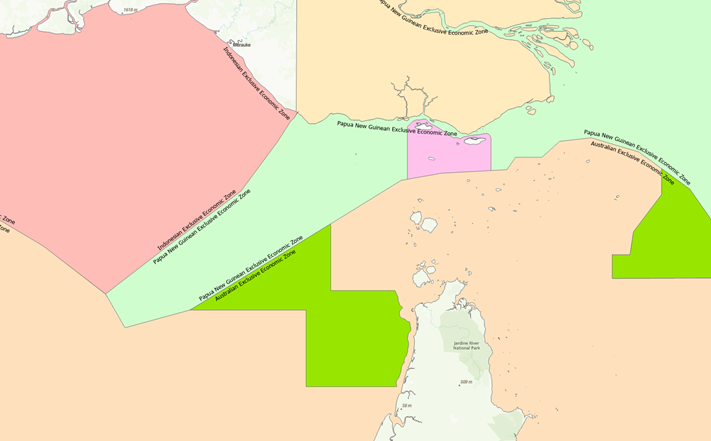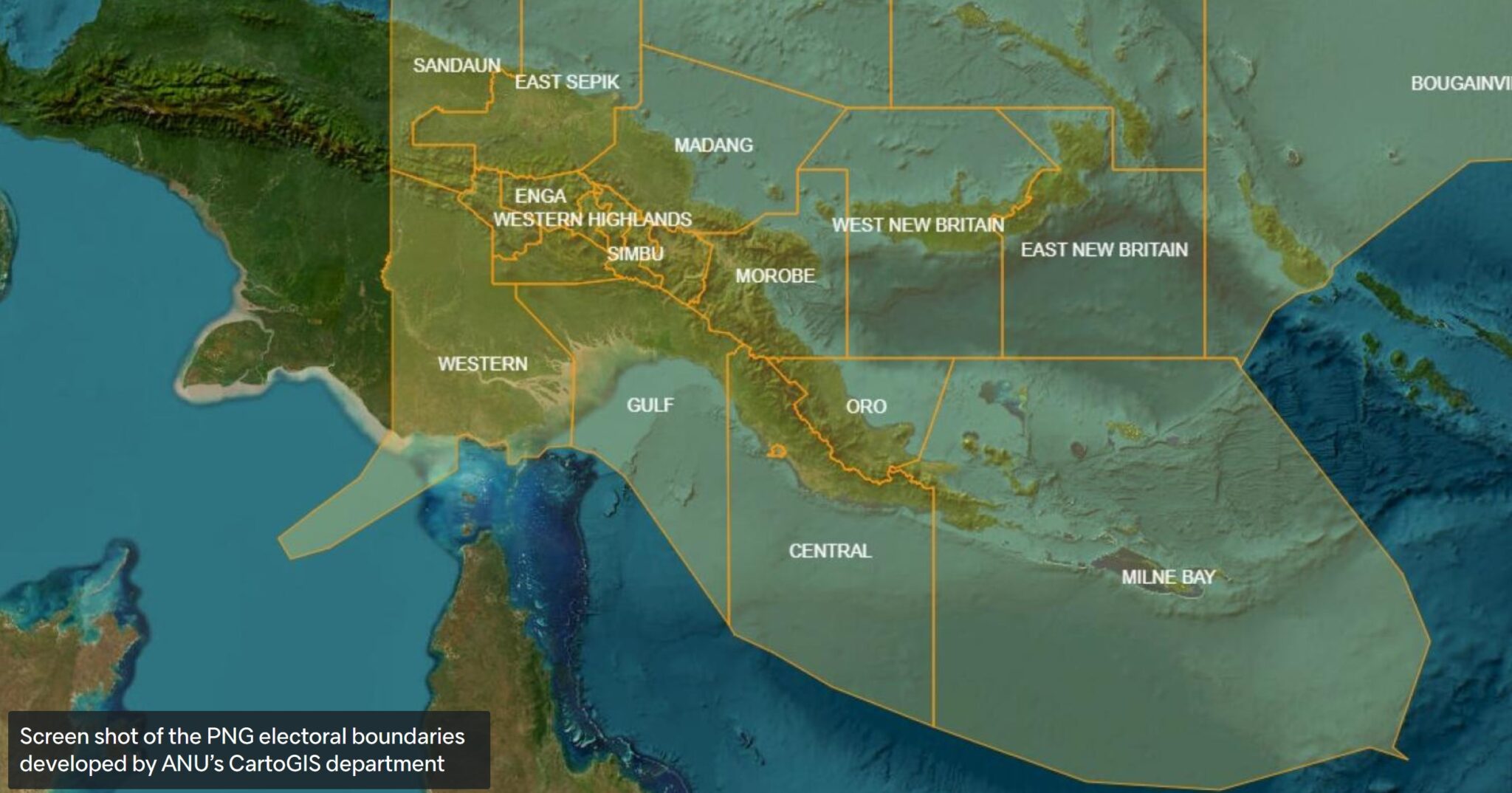Your weekly Interpreter function about points, sources
or useful distractions which may in any other case be missed.
We’re asking contributors to place collectively their very own collected observations like this one – and as at all times, should you’ve received an thought to pitch for The Interpreter, drop a line by way of the contact particulars on the About web page.
Nothing is because it appears in Australia’s closest neighbour, Papua New Guinea. Simply final month the United Nations Inhabitants Fund revised down its estimate of PNG’s inhabitants from 17 million to 11.8 million, which lastly sits comfortably with the PNG authorities. That’s a walloping 5.2 million revision by the UN. And even then, nobody actually is aware of the precise variety of folks within the nation.
One other contentious subject is mapping. Earlier than the elections final yr, PNG rushed by seven new voting districts. Though the Electoral Fee launched new district maps individually, it did not publish a brand new nationwide map. Now, due to the Australian Nationwide College’s CartoGIS division, now we have a map that reveals an estimated dimension of the brand new districts.
As geopolitical competitors over PNG grows, so should the accuracy of information concerning the nation.
The map itself has a number of quirks. PNG’s Unique Financial Zone (EEZ) is drawn weirdly – significantly within the south-west the place PNG shares maritime borders with Australia and Indonesia.
Usually, EEZ boundaries are outlined as as much as a 200 nautical mile buffer from a nation’s territorial sea. In keeping with this map, PNG owns a strip of ocean jutting out properly into what could be thought-about Australian and Indonesian territory. This seems to not be a fault of PNG, however a consequence of how Australia and Indonesia’s EEZs and marine parks are drawn.

Discovering an correct map is essential, significantly regarding safety as Australia and the USA work towards safety pacts with PNG. The USA signed a defence cooperation settlement with PNG in Could, and Australia is near placing pen to paper on one with PNG as properly. PNG is courting different nations, too, with Narendra Modi (India), Joko Widodo (Indonesia), and Emmanuel Macron (France) all visiting Port Moresby in fast succession.
As geopolitical competitors over PNG grows, so should the accuracy of information concerning the nation. In any other case, all assessments might be based on guesswork.
Work on each the PNG–China and PNG–Australia FTAs is within the early levels. Following a feasibility research comes consultations with related stakeholders and negotiations between respective governments, which may take a very long time – though PNG’s Prime Minister James Marape intends to finish the China FTA on the “very earliest” alternative. Work on the FTAs faces a political threat as properly – if Marape is eliminated as PM when votes of no confidence are allowed in 2024, a brand new authorities might select to delay or finish work executed on any of the free commerce offers.
That mentioned, for PNG, these commerce agreements deliver a constructive shift in coverage, forcing authorities out of the protectionist regime it has adopted in recent times. Between 2018 and 2019, PNG launched 323 tariff line will increase to help native manufacturing firms and lift authorities income, reversing a 20-year tariff discount program (TRP).
The tariffs and levies have contributed little to authorities coffers, failing to exceed 3% of presidency income since 2018.
PNG has three tariff classes: intermediate, protecting, and prohibitive. Intermediate charges are utilized to inputs used within the manufacturing processes of native industries. Protecting charges are imposed on imports of ultimate items that compete with home producers. Prohibitive charges are the very best class of tariffs, utilized to items deemed useful exports.
The TRP diminished tariff charges at three-year intervals starting in 1999. The goal in 2019 was for intermediate tariffs to achieve 10% from a median of 30%; for protecting charges to achieve 10% from a median of 49%; and for prohibitive charges to achieve 25% from charges above 55%. By 2015, intermediate, protecting and prohibitive charges had reached 10, 15, and 30% respectively.
Tariff hikes in 2018 and 2019 raised charges by an common of seven% and 14% respectively. The PNG authorities additional launched levy and price will increase on imported oil palm equipment in 2020.
The tariffs and levies have contributed little to authorities coffers, failing to exceed 3% of presidency income since 2018. Additional, these tariff hikes might not help producers as meant. Whereas a research on the effectiveness of the 2018 and 2019 tariffs hasn’t been carried out, a tariff research in 2003 discovered that the manufacturing sector, then protected by excessive tariffs, expanded the slowest. Excessive tariffs additionally negatively affected export industries by elevating prices on imported inputs and punishing giant capital-intensive producers.
The FTAs might be at odds with Marape’s different insurance policies to encourage import substitution. For example, in selling timber processing, authorities elevated the export tax on spherical logs by 20% this yr. This follows the 2020 export tax fee enhance from 32.5 to 59% on spherical logs which drove a number of logging firms out of enterprise and led to a fall in log exports. As well as, authorities has introduced a ban on spherical log exports in 2025, though related guarantees prior to now haven’t been saved.
General, FTAs with each Australia and China are welcome as they may result in higher improvement outcomes for Papua New Guineans and encourage PNG to revisit insurance policies which have been detrimental to commerce. Within the years to come back, nevertheless, an FTA with China will probably make the superpower PNG’s most essential commerce accomplice.
Contributor: Maholopa (Maho) Laveil.

